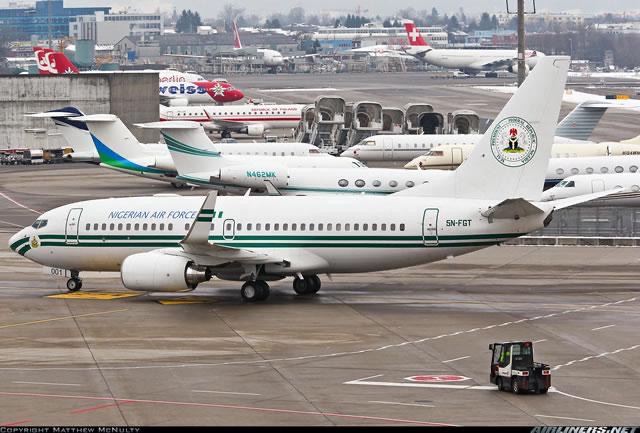The federal government has put three ageing presidential jets on sale in a move officials say will cut excessive spending on fleet maintenance.
This is coming as the House of Representatives committee on national security and intelligence recommended that two aircraft should be purchased for use by the president and the vice-president.
Shehu Buba Umar, chairman of the senate committee on national security and intelligence, also supported the recommendation by the lower chamber’s committee.
Selling off the three aircraft would cut by half the number of jets in the presidential air fleet.
The fleet currently consists of six airplanes and four helicopters.
The current fleet, maintained by the presidential air fleet (PAF), an arm of the Office of the National Security Adviser (NSA), include Boeing 737 Boeing Business Jet (BBJ), a Gulfstream G550, a Gulfstream GV, two Falcon 7x and one Challenger CL605.
According to a report by TheCable, insiders have said that at least half of the entire fleet is made up of unserviceable or failing aircraft, necessitating the need to dispose those considered to be of greater burden to the fleet.
The jets pencilled down for sale, TheCable understands, are a Boeing 737 Boeing Business Jet (BBJ), which is the president’s designated aircraft, one Gulfstream and a Falcon 7x.
The report further indicated that the federal government has appointed a frontline US-based airline marketer, JetHQ, as the broker for the sale of the three aircraft.
An exclusive marketing agreement had been signed between the Nigerian government and the company giving the firm permission to value the three aircrafts and subsequently market them.
Insiders say proceeds from the sale would go into procuring a new jet for the fleet, for which a search is ongoing.
The marketing firm, it was noted, has already submitted three bids from buyers to the Office of the National Security Adviser for consideration.
“Yes, we have received two offers for the BBJ and one for the Falcon X. But the NSA insisted that we must press for a better deal instead of rushing to have a bad deal for the government,” an PAF official involved with the process said on condition of anonymity.
Zakari Mijinyawa, a spokesman for the NSA, confirmed the ongoing disposal process to TheCable but gave no further details.









